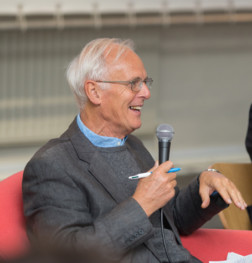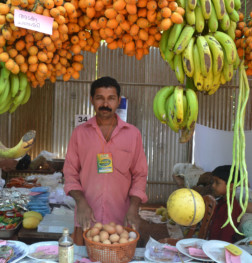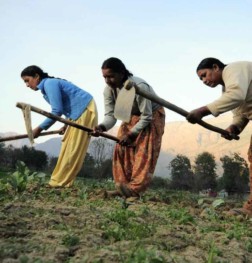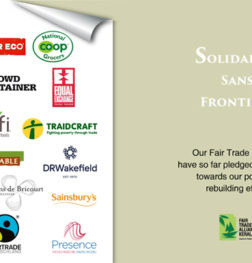
Food sovereignty taking seed in Kerala, India
02 September 2013
After hearing Tomy Mathew, one of the founders and promoters of Fair Trade Alliance Kerala (FTAK), present at Twin’s Climate Change roundtable in March this year, I am curious to find out more about FTAK’s Fair Trade + 3 strategy. The main focus of my visit will be Gender Justice, learning about the situation of women in FTAK member families, and their contribution to the production of coffee and cashew, the two crops which Twin Trading buys from FTAK. But the trip also offers the opportunity to get a fuller picture of FTAK’s two other key areas of work and how the three interrelate.
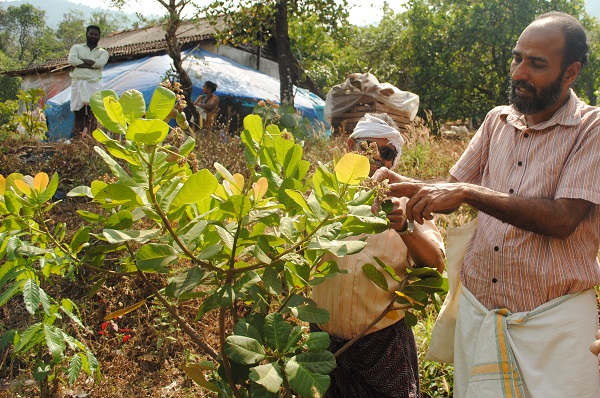
I fly to Calicut in Kerala, one of India’s most developed states, and travel on to FTAK’s new office in Kannur in search of Tomy. I arrive a little dazed from the journey to find I have missed the first day of a series of strategic meetings, but the atmosphere is positive and Tomy fills me in. FTAK’s strategy takes Fair Trade as a starting point, and has three main cornerstones: Biodiversity, Food Security and Gender Justice. Day one focused on biodiversity, with members mapping out their farms to identify ‘gaps’ for planting new plants and trees and forming a task force to take the strategy forward.
Food security and sovereignty
The topic for Day Two is Food Security. Tomy explained that the aim is for each farm to produce more calories than the family consumes, even if they end up selling or buying some produce. The attendees work in small groups and begin by making a list of foods they eat; identifying which foods are grown locally, what is brought from outside, and how this has changed over time. Seed and food sovereignty is a key issue – farmers are strongly opposed to GM crops, not only due to health and environmental concerns, but also because they want to protect ownership of seeds from corporate patenting. Each family is encouraged to re-introduce forgotten traditional crops, looking to each other to provide seeds if they don’t have them. This builds on FTAK’s Seed Festival, an annual event which began in 2011 that encourages members to swop seeds.
Participants also considered what foods they consume and whether the balance could be shifted away from rice back to more traditional staples such as cassava and jackfruit (which I later sample at Thomas, the Chairman of FTAK, and his wife Molly’s house and is absolutely delicious and very versatile – it appears in several guises over the course of the week, including crisps). The group finished by mapping out each period of the year and what food crops could be cultivated. The goal is for each household to have at least five varieties of food crop planted on their land.
The day rounds off with a heated discussion about how to protect vegetable plots from hungry elephants and wild boar, and the cost of fencing. Some suggest that they could grow vegetables in adjacent plots, and club together to fence off the whole area, thereby reducing the cost. There is mention of examples of the successful use of solar fencing, which uses solar energy to produce a mild (but safe) electric shock. During the rest of my visit, fencing is a hot topic (although I don’t catch sight of any wild board), and I see widespread evidence of a healthy diversity on farms. My mouth practically waters when I hear the combination of fruit, spices and vegetables that are grown on most farms – pepper, ginger, clove, cinnamon, nutmeg, coconut and mango, jackfruit, and aubergine, lady’s fingers, bitter gourd and beans!
Organic production
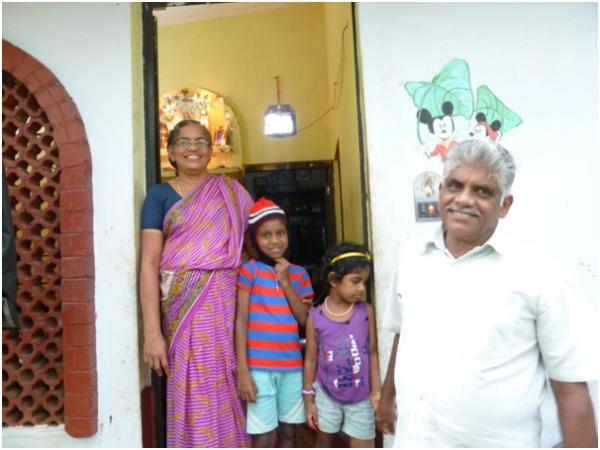
On my last day, I visit Mary and her husband Thomson in the village of Kanjirakolly in Kannur. Mary is now entirely self-sufficient in her vegetable production. She consumes or dries everything she grows, only going to the market to sell a little of her aubergine crop. There is a strong consciousness amongst the members of FTAK of food safety and a commitment to organic principles, in part due to publicised health scares about chemical residues found in vegetables and curry leaves in the last few years. Some members are considering setting up a local organic vegetable shop, to market their surplus produce, as it is hard to distinguish in the local market between organic and non-organic produce.
The work that FTAK is doing in this area turns the argument that small farmers in the developing work should focus on subsistence farming rather than cash crops, on its head. It brings to mind Twin’s work with NASFAM, the National Smallholder Association of Malawi, to ensure that the groundnut crop is free from harmful microtoxins not just for export but also for local consumption. Both NASFAM and FTAK are using the infrastructure of a Fairtrade, cash-crop oriented organisation to enhance local food quality and security. I am excited and inspired to see this work in action – a model I hope will be replicated in other Fairtrade cooperatives around the world.
Original article shall be found here: Food sovereignty taking seed in Kerala, India
